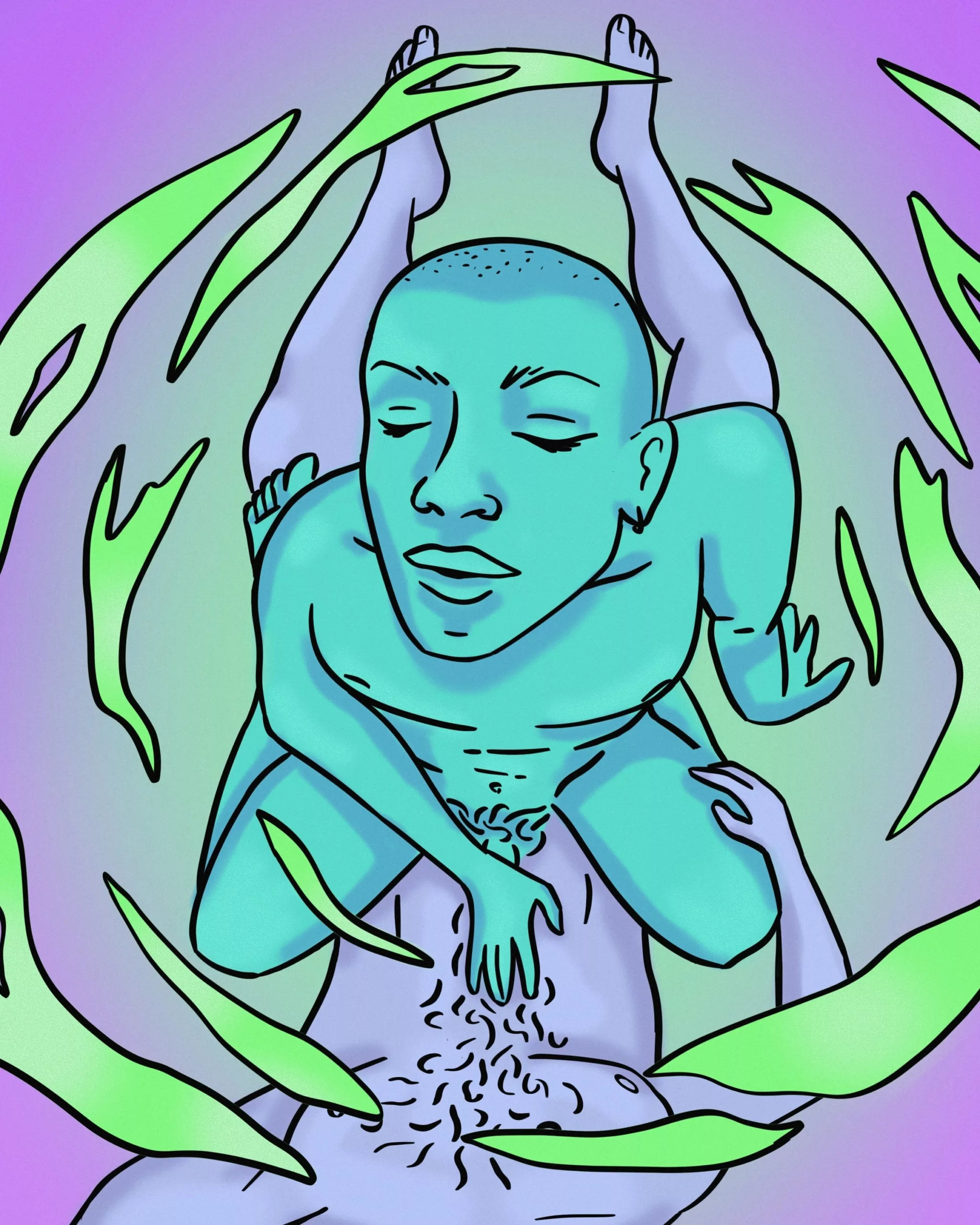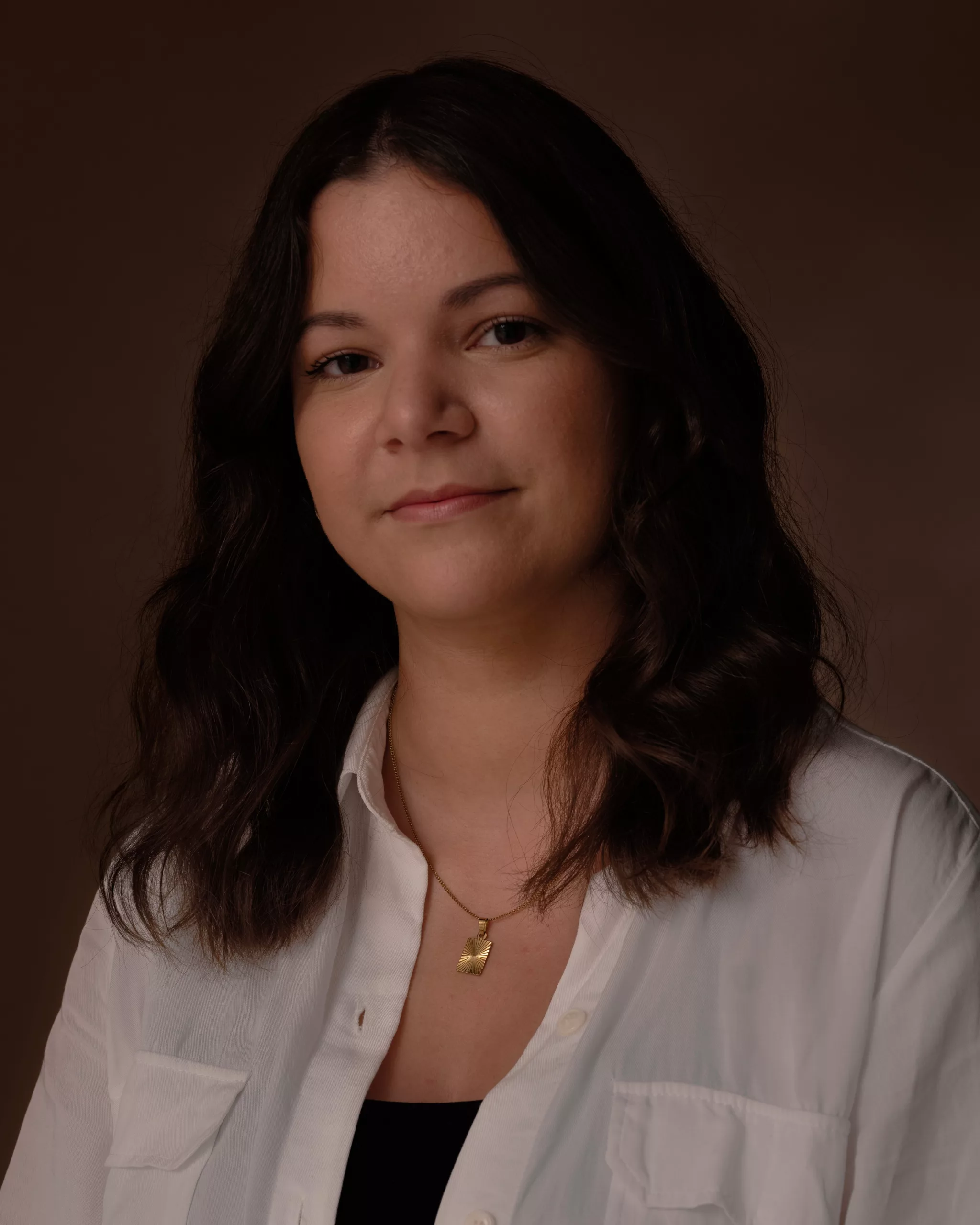Your cart is currently empty!

Sex and Drugs: Two Former Chemsex Enthusiasts Testify
Summary
“Chemsex” or “Party and Play” (PnP) is an increasingly widespread practice, particularly in gay communities in large cities like Montreal. Two former chemsex enthusiasts agreed to share with us their experience with this practice.
“Taking crystal meth removed a whole layer of shame and judgment I felt about my own sexuality. Suddenly, I could experience it the way I wanted, without feeling insecure or self-conscious. But it almost cost me my life.”
For almost nine years, Éric used drugs—mainly crystal meth—to enhance his sex life. Up to several times a week, they engaged in sexual marathons with men while under the influence of psychoactive substances. This practice—called “chemsex” or “party and play” (PnP)—is increasingly widespread, particularly in gay communities in large cities like Montreal.
Now 39 years old and sober from all substances, Éric remembers their first exposure to crystal meth in a gay sauna in the metropolis as if it were yesterday.
“That evening was the start of a day-and-a-half trip of sleeplessness and unbridled sex with several partners,” they said.
“When I got back home, I immediately knew I was in trouble. I had liked it way too much.”
Sexual intoxication
When they used, Éric felt invincible and extremely desirable; their sexual pleasure increased tenfold and they became, in their mind, the perfect lover. But when the effects of the drug wear off, depression sets in and feels as intense as the sexual euphoria of the previous days.
Over the years, Éric constantly tried to stop using, to no avail. Tina’s call was too strong.
“My years of consumption were made up of physical and mental health problems, STIs, wild sex with blurred consent, moments where I was on the verge of psychosis, where I started to hear voices, and where I was afraid of dying,” they confide. “I remember one time I passed out in a sauna and woke up several hours later, alone. I could have overdosed right then and there and never woken up.”
Éric’s addiction undermined their career on the cultural scene, but also their relationships. “Chemsex is so intense that, by comparison, the idea of intimate, one-on-one sex in a romantic relationship didn’t excite me anymore,” he said.
“All my fantasies—my entire sexual world—were made up of images of chemsex, which also came with an extremely intense pornography consumption. I was experiencing too much shame to be able to be intimate with someone while sober.”
Shame is what prevented Eric from talking about their addiction to those around them. At the time, very few people talked about chemsex. Eric felt all alone in the world, but one day, they heard about Crystal Meth Anonymous and decided to join a support group.
“From then on, I knew that there were people who succeeded in quitting crystal, that it was possible,” they said. “I met people in recovery there, I participated in a video project on recovery, and I wrote a play on the subject. From the moment I started talking about it, things started to get better.”
Maximizing pleasure
Félix, 26, also tried crystal meth for the first time in a Montreal sauna. He was already occasionally using ketamine, coke, and MDMA, but at parties rather than for chemsex. This first experience was followed by approximately four months of sexualized consumption.
“It’s sex with maximized, very intense sensations,” he explained. “There are no more insecurities: I wasn’t self-conscious anymore like I sometimes was when it came to my sexuality. At first, you have the impression of sharing a moment, a connection with someone else, but deep down, we’re all just focused on our own carnal pleasure.”
“I tried things, sexually, that I never would have done if I wasn’t on this drug. It’s as if there were no more barriers,” he adds. “I always wanted to go further to maximize pleasure.”
Félix quickly experienced his first psychosis, then another: he went to work without having slept for five days and realized that he was hearing voices. “It really traumatized me. Honestly, I’m nearing five years of sobriety from this substance, and I feel like my mental health is just starting to stabilize. In a way, it was good that it scared me, because that’s what motivated me to stop.”
Ending shame
For Éric and Félix, chemsex lies at the intersection of several issues experienced in gay communities, especially internalized transphobia and homophobia.
“I think it says a lot about the ills of the community that a large proportion of it needs to get high in order to let themselves go and enjoy a moment of intimacy,” emphasizes Félix.
“I’m not judging people who use drugs, far from it. What I’m saying is that, in an ideal world, we wouldn’t need to consume drugs to have a sex life where we feel good about ourselves and with others.”
“There’s also the whole aspect of gender identity,” mentions Éric. “I have always felt uncomfortable with the kind of masculinity that I felt I needed to exude in my gay sexuality. I never felt like I was good enough or masculine enough. But, with chemsex, all these standards disappear.”
According to Éric, there is still a long way to go for members of the gay community to “learn to enter intimate relationships with each other in a healthy way.”
“I have friends who are trying to get sober, but they go on Grindr and face so much violence! They get ghosted or face racism, homophobia, or fatphobia. It’s damn tough to try and face that sober.”
“I have nothing against unbridled sexuality, having multiple partners, or one-night stands if that’s what rocks your boat,” they said, “but many of us still have a long way to go when it comes to how we treat others and how we relate to each other.”
Fortunately, more and more people like Éric and Félix are opening up publicly about their experiences with chemsex, and more resources are now available to support users, whether or not they are looking to quit.
“Without help, I am convinced that I wouldn’t have been able to get through it, so it’s great to see that a dialogue on these questions is opening up,” said Éric.
“The biggest barrier to seeking help is shame,” they add. “So, the more people talk about it and we allow people to feel valid and proud of who they are despite their consumption, regardless of their gender identity or sexual orientation, the more people will feel free to talk about it with their doctors, therapists, and others around them and the more they will be able to recover.”

To learn more, check out our informative article on chemsex.
-
Information about HIV and rapid self-testing kits
Helplines
- Drugs Help and Referral, Montreal region: (514) 527-2626 | Everywhere in Quebec: 1-800-265-2626
Urgence-dépendance en toxicomanie: (514) 288-1515
LGBTQ+ support and reference organizations
Support groups (Montreal region)
Online help and reference services
- Mybuzz.ca
Chemstory podcast (in which Éric and Félix participated)
Ça prend un village (It Takes a Village) - List of certified addiction resources
Harm reduction
(Supervised consumption site [SCS]/Overdose prevention center [CPS]/Distribution and collection of consumption paraphernalia/Psychoactive substance analysis)
- Montreal: Cactus (checkpoint), Dopamine, Spectre de rue, L’Anonyme (mobile unit), REZO, KONTAK, GRIP (substance analysis)
Quebec City: L’Interzone, SABSA (mobile unit)
Val-d’Or: Clinique Pikatemps
Laval: Oasis unité mobile d’intervention
Chicoutimi: Travail de rue Chicoutimi
Gatineau: BRAS Outaouais (mobile), CIPTO
- Drugs Help and Referral, Montreal region: (514) 527-2626 | Everywhere in Quebec: 1-800-265-2626
-
Delebarre, C., & Genon, C. (2013). L’impact de l’homophobie sur la santé des jeunes homosexuel·le·s [The impact of homophobia on the health of homosexual youth]. Cahiers de l’action, 40(3), 27–36. https://www.cairn.info/revue-cahiers-de-l-action-2013-3-page-27.htm
Anato, J. L. F., Panagiotoglou, D., Greenwald, Z. R., Blanchette, M., Trottier, C., Vaziri, M., … & Maheu-Giroux, M. (2022). Chemsex and incidence of sexually transmitted infections among Canadian pre-exposure prophylaxis (PrEP) users in the l’Actuel PrEP Cohort (2013–2020). Sexually Transmitted Infections, 98(8), 549–556. https://www.ncbi.nlm.nih.gov/pmc/articles/PMC9685712/
Government of Quebec. (2023). Assault involving involuntary intoxication of a person. https://www.quebec.ca/en/family-and-support-for-individuals/violence/assault-intoxication





